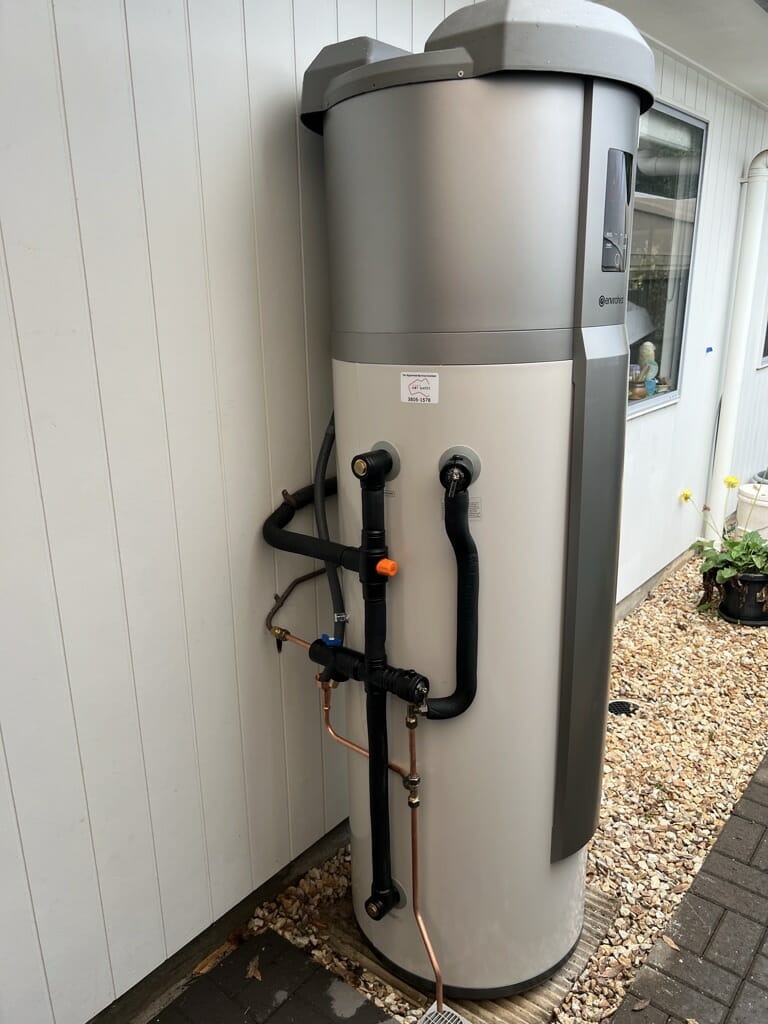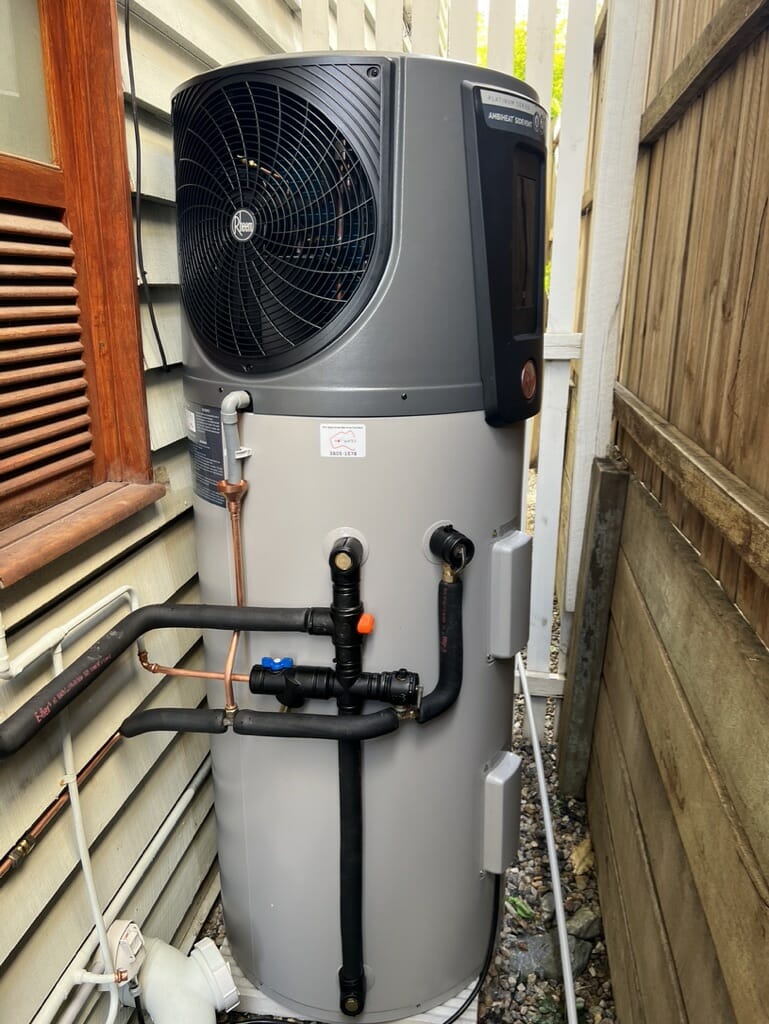Are Heat Pump Hot Water Systems Good?
Heat pumps aren’t just a good idea. They’re a win-win scenario for everyone involved.
Heat pumps save you much of your household spending on energy, and also help to reduce carbon emissions.
As energy becomes more expensive and resources more precious, heat pumps are only going to become more popular. And that’s especially true with the new changes to the National Construction Code (NCC) that are taking place in 2023.
How Does a Heat Pump Work?
As fantastic as they are, a heat pump is actually a pretty simple system.
The idea is to transport heat from the surrounding area to the desired location. A heat pump draws heat from the outside. Using an electric compressor it focuses the temperature, and then sends the heat to the water heater.
This is similar to how a fridge or freezer operates.
A heat pump is usually good news for the environment. Even just an ordinary heat pump using standard Australian grid energy can reduce emissions by a quarter compared to gas, or three quarters compared to an electric.
How Efficient Are Heat Pumps?
Most of the Heat Pump Hot Water Systems on the market today have an efficiency range of 300 to 600%. Think of this as, for each unit of power the heat pump uses, it produces 3 to 6 units of heat.
Keep in mind that how well it works depends on the temperature difference between how cold it is outside and how warm you you hot water. The bigger the temperature difference, the less effective a heat pump is going to be, as it struggles to keep up with the demands being placed on it.
Having said that, any heat pump will leave conventional electric and gas heaters far behind as these systems only have a maximum efficiency of 100%.
Not only is this superbly efficient at keeping your water hot, but it can even continue to function at freezing temperatures.

How Much Could I Save?
The savings can add up to quite a bit.
How much you could save will partially depend on what you already have. The cost reductions will be the most for households who currently use inefficient gas heating, have a solar power system.
A heat pump can reduce your household energy expenses by 60 to 85%, if it will replace an existing system such as electric storage hot water.
If you’re using gas, it can be difficult to calculate the energy savings, as the cost and efficiency can vary.
>As a rule of thumb, you can expect heating with a heat pump to cost about half as much as with a gas furnace.
If you are looking to save as much on your energy costs as you can,
- Combine a heat pump with a solar panel system. You can bring down your energy costs by as much as 90% compared to gas heating.
Ask about Your Heat Pump Today
With the new NCC regulations kicking in, heat pumps are a better idea than ever before.
To learn more about how your household could benefit from the new changes, call 07 3805 1578
Contact us for the most competitive hot water rates in Australia.





